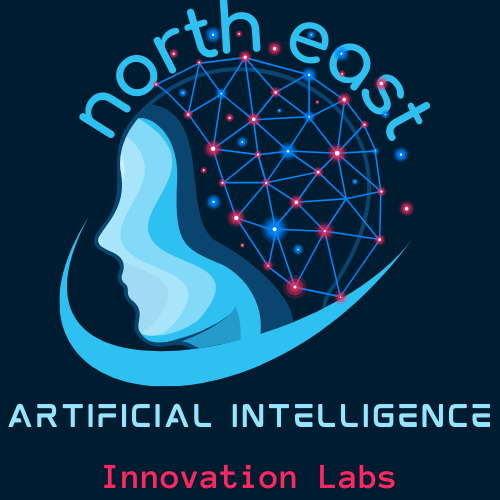AI in 2025: What Everyone Needs to Know

Artificial Intelligence (AI) is no longer a futuristic concept; it's rapidly reshaping our present and will drastically alter our future. By 2025, AI's influence will be even more profound, touching every aspect of our lives. But what exactly is AI, and why does it matter now more than ever? Let's go into the essential knowledge you need to navigate this evolving landscape.
Understanding the Core: What is AI?
At its heart, artificial intelligence refers to the simulation of human intelligence processes by machines, especially computer systems. These processes include learning (machine learning), reasoning, and self-correction. AI encompasses a wide range of technologies, including:
- Machine Learning (ML): Algorithms that enable computers to learn from data without explicit programming. This includes deep learning, a subset of ML using neural networks with multiple layers to analyze complex data.
- Natural Language Processing (NLP): Enabling computers to understand, interpret, and generate human language. Think chatbots, voice assistants, and sentiment analysis.
- Computer Vision: Allowing machines to "see" and interpret images and videos, crucial for applications like autonomous vehicles and facial recognition.
- Robotics: Integrating AI into physical machines to perform tasks autonomously or semi-autonomously.
- Generative AI: The ability to create new content, be it text, images, or even code.
The Current AI Landscape: Where Are We Now?
Today, AI is already integrated into numerous aspects of our daily lives. From personalized recommendations on streaming platforms to fraud detection in financial transactions, AI is working behind the scenes. Key trends shaping the current landscape include:
- Increased Accessibility: Cloud-based AI platforms and open-source libraries have democratized AI development, making it accessible to a broader range of developers and businesses.
- Advancements in Deep Learning: Deep learning models, particularly large language models (LLMs), have achieved remarkable breakthroughs in NLP and computer vision.
- Edge AI: Processing AI algorithms on local devices rather than in the cloud, improving latency and privacy.
- AI Ethics and Governance: Growing awareness of the ethical implications of AI, leading to discussions and frameworks for responsible AI development and deployment.
- Industry-Specific AI Applications: AI is being tailored to specific industries, such as healthcare (diagnosis, drug discovery), finance (algorithmic trading, risk assessment), and manufacturing (predictive maintenance, quality control).
Why AI Matters Now: The Urgency of Understanding
The rapid acceleration of AI development makes understanding its implications crucial for individuals and organizations alike. Here's why:
- Economic Transformation: AI is poised to revolutionize industries, creating new jobs while automating others. Understanding AI can help individuals and businesses adapt to these changes.
- Increased Efficiency and Productivity: AI can automate repetitive tasks, allowing humans to focus on more creative and strategic work. Businesses that embrace AI can gain a significant competitive advantage.
- Enhanced Decision-Making: AI algorithms can analyze vast amounts of data to provide insights and support better decision-making in various domains, from business strategy to medical diagnosis.
- Solving Complex Problems: AI has the potential to address some of the world's most pressing challenges, such as climate change, disease, and poverty.
- Personalization and Customization: AI enables personalized experiences in various sectors, from education and healthcare to entertainment and retail.
Looking Ahead: AI in 2025
In 2025, we can expect to see:
- Hyper-Personalization: AI will enable even more personalized experiences across all aspects of life, from education tailored to individual learning styles to healthcare treatments customized to a patient's genetic makeup.
- Advanced Automation: AI-powered automation will become more prevalent in various industries, leading to increased efficiency and productivity.
- Ubiquitous AI Assistants: AI assistants will become more sophisticated, seamlessly integrating into our daily lives to manage tasks, provide information, and offer personalized support.
- Increased Focus on AI Ethics: Regulations and ethical guidelines will become more established, ensuring responsible AI development and deployment.
- AI-Driven Innovation: AI will fuel innovation in various fields, leading to new products, services, and solutions that were previously unimaginable.
- Quantum AI: The beginnings of quantum computing enhancing current AI models.
Preparing for the AI-Driven Future
To thrive in the AI-driven future, individuals and organizations need to:
- Embrace Lifelong Learning: Continuously update your skills and knowledge to stay relevant in a rapidly changing job market.
- Develop AI Literacy: Understand the basics of AI and its potential applications.
- Foster Critical Thinking and Problem-Solving Skills: These skills will become increasingly valuable as AI automates routine tasks.
- Prioritize Ethical Considerations: Develop a strong understanding of the ethical implications of AI and promote responsible AI development and deployment.
- Invest in AI Education and Training: Organizations should invest in training their employees to work alongside AI systems.
What Can You Do To Stay Abreast:
Ready to navigate the AI revolution? Stay ahead of the curve by deepening your understanding of AI. Join our workshops or Subscribe to our newsletter for the latest insights, trends, and practical guides on AI. Don't let the future pass you by—empower yourself with the knowledge you need to thrive in the age of AI.
By understanding the fundamentals of AI, its current landscape, and its future potential, you can position yourself for success in the rapidly evolving world of technology.




